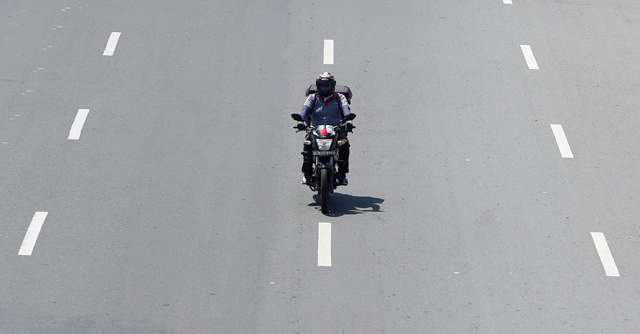
Ecommerce, cab aggregators to resume operations in lockdown 4


Ecommerce delivery of non-essential items, resumption of inter-state and intra-state public transport and opening of restaurant kitchens mark the beginning of the fourth phase of the Covid-19 induced nationwide lockdown.
The central government on Sunday extended the lockdown, in place since the third week of March, to May 31. The latest phase comes with several relaxations, with services resuming on May 18.
Under the new guidelines issued by the Ministry of Home Affairs, states will decide on the categorisation of districts and municipalities as red, orange and green zones. The categories will be decided based on the total number of active cases per lakh of population, doubling rate calculated over a period of seven days, fatality rate, the testing ratio per lakh of the population and number of positive samples.

Some of the key takeaways from the guidelines for the current phase of lockdown include:
- Opening up ecommerce delivery of non-essential items in the red zone -- This was previously prohibited and ecommerce deliveries were restricted to only essential goods from March 24 when the first national lockdown was announced. This was later relaxed in the orange and green zones. However, deliveries will continue to be restricted to essential items in containment zones in the ongoing phase.
- Installing Aarogya Setu mandatory to the best of employer’s effort -- Softening its stand, the MHA has said that all employers on ‘best effort basis’ will have to ensure that Aarogya Setu app is downloaded by all employees with smartphones. Previously, the government had made it mandatory to download the contact tracing app for public and private sector employees, failing to do which would lead to criminal proceedings against the head of the institution or organisation. Industry bodies and Internet Freedom Foundation had flagged the issue to the government on security concerns as well as the strict punishment accompanying the clause.
- Inter-state and intra-state movement of passenger vehicles and buses -- The relaxation has been allowed in accordance with standard operating procedures (SOPs) specified by the MHA in previous orders for various modes of transport. This will also allow cab aggregators such as Uber and Ola to ply cab transport with two passengers apart from the driver, while shared rides continue to be banned. On-demand bike transport through options such as Bounce continue to be prohibited as the SOPs allow only one person per two-wheeler. Domestic and international air travel remains banned.
- Restaurants permitted to operate kitchens -- Even as food delivery platforms take a step back on their cloud kitchen expansion, the current set of guidelines allows restaurants to operate kitchens for home delivery of food. Food orders have fallen to a quarter of their peak orders due to implementation of the lockdown as well as concerns on hygiene, leading to layoffs at Swiggy, Zomato and others.
- Night curfew and restriction on movement -- Also movement of individuals has been restricted between 7 am to 7 pm unless for essential purposes. Also, senior citizens above 65 years of age, persons with co-morbidities, expectant mothers and children below age of 10 years are required to stay home other than for essential and health purposes.
- Those living in the containment zones will be subject to intensive contact tracing, house-to-house surveillance and other clinical interventions say the guidelines without specifying what the clinical interventions will include.
